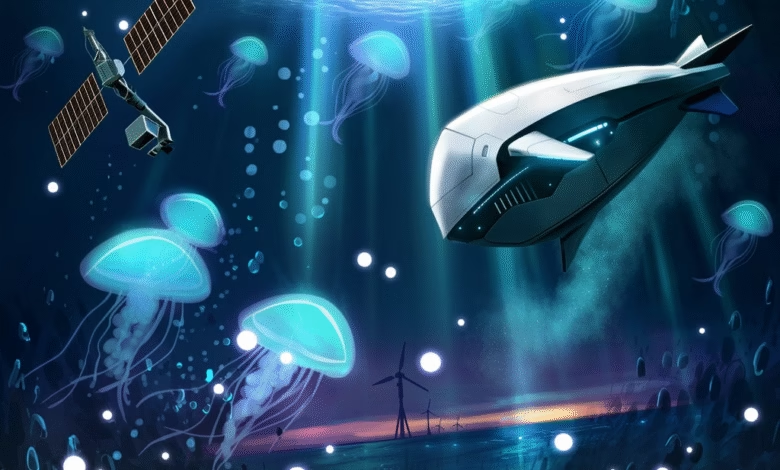AI Satellites & Sea Drones Team Up to Protect Europe’s Coastlines

▼ Summary
– Ubotica, an Irish startup, has partnered with Dutch firms Fugro and DTACT to develop an AI-powered maritime security platform for European waters.
– The platform integrates real-time data from sea, air, and space, using Fugro’s drones and Ubotica’s satellites to monitor underwater infrastructure like pipelines and cables.
– The system aims to enhance situational awareness and enable near-real-time responses to maritime threats, particularly after incidents like the 2022 Nord Stream sabotage.
– The partnership will initially serve governments in the North Sea and Baltic regions, which are strategic hotspots for maritime defense due to proximity to Russia.
– Other trials in the region include Denmark testing autonomous drones and Dutch firm Optics11 deploying fibre-optic sensors to detect enemy vessels.
A cutting-edge alliance between AI satellites and sea drones is set to revolutionize maritime security across Europe’s coastal regions. An Irish startup specializing in satellite-based artificial intelligence has joined forces with two Dutch companies to create an advanced surveillance platform designed to protect critical underwater infrastructure.
The collaboration brings together Ubotica, known for its edge AI satellite technology, Fugro, a leader in offshore geodata and marine robotics, and DTACT, a cybersecurity firm focused on defense applications. Together, they aim to deliver a seamless intelligence network that merges real-time data from space, air, and sea. Fugro’s fleet of uncrewed drones and underwater vehicles will scan the ocean floor, while Ubotica’s AI-enhanced satellites monitor surface activity, detecting unusual vessel movements instantly. DTACT will integrate these inputs into a robust cybersecurity framework, ensuring rapid threat assessment and response.
Fintan Buckley, CEO of Ubotica, emphasized the transformative potential of this space-to-seabed surveillance system, calling it a game-changer for maritime situational awareness. “By combining our expertise with Fugro’s marine capabilities and DTACT’s cybersecurity solutions, we’re creating a near real-time defense mechanism that safeguards underwater assets for years to come,” he said.
The urgency for such technology has intensified following the 2022 Nord Stream pipeline sabotage, which exposed the fragility of subsea infrastructure. With rising geopolitical tensions, particularly concerning Russian naval activity, NATO members are prioritizing next-generation maritime defense systems.
Ivar de Josselin de Jong from Fugro highlighted how this partnership enables data-driven security operations, empowering governments with actionable intelligence. Initial deployments will concentrate on the North Sea and Baltic regions, where strategic vulnerabilities and proximity to potential threats make them ideal testing grounds.
Other innovative systems are already in trial phases across these waters. Denmark’s military is experimenting with autonomous surface drones in the Baltic, while Dutch firm Optics11 is deploying fiber-optic sensors in the North Sea that use light-based acoustic detection to identify hostile vessels. Together, these advancements mark a significant leap forward in Europe’s efforts to secure its maritime frontiers.
(Source: The Next Web)
